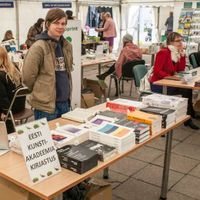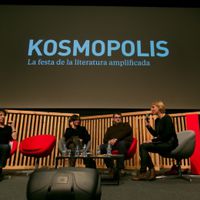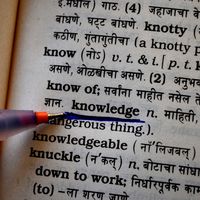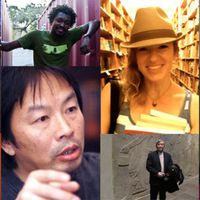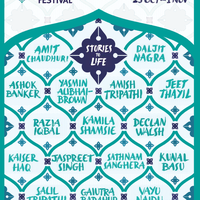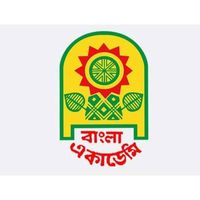Dhaka Literary Festival | Bringing the best of Bangladeshi literature to the world
 Dhaka Literary Festival co-director and producer Sadaf SAAZ discusses with Claire WILSON how literary festivals can build bridges and mutual understanding.
Dhaka Literary Festival co-director and producer Sadaf SAAZ discusses with Claire WILSON how literary festivals can build bridges and mutual understanding. [caption id="attachment_59244" align="aligncenter" width="620"]
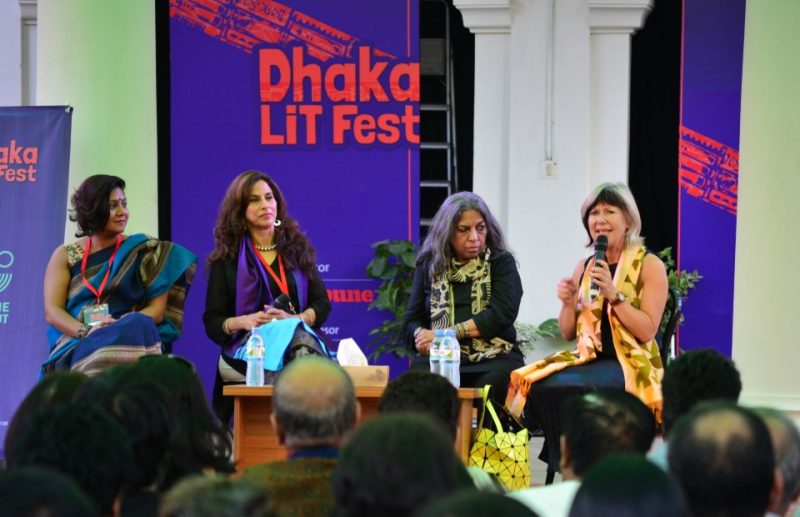 Image courtesy of the Dhaka Literary Festival[/caption]
Image courtesy of the Dhaka Literary Festival[/caption]The Dhaka Literary Festival (DLF) started in 2011 under the aegis of the well-established Hay-on-Wye Festival, hosted by the British Council in Dhaka. This one-day pilot festival has grown in scope in the five years its been running, shifting to the Bangla Academy in its second year and changing to its current name in 2015. An ever growing festival, last year over 250 participants from 13 different countries took part, and more than 20,000 people attended.
Bangladesh has a long history of great writers, including Rabindranath TAGORE and Lalon SHAH, and a passion for words and language is still very much an integral part of contemporary life. The aim of the festival is to continue this history of discussion and debate by providing a meeting space for Bangladesh and the world through literature.
In the words of Sadaf SAAZ, ‘the festival has always been rooted very much in the culture, heritage and aspirations of Bangladesh, with a view to connect and engage with the wider world.’
The Dhaka Literary Festival is an intimate festival, but one that has an important role in creating a yearly gathering place for the literary scene of Bangladesh. It’s a festival that brings together local and international literature, providing a platform for open discussions in English, Bangla and other indigenous languages.
ASEF culture360 contributor Claire Rosslyn WILSON took the chance to talk to co-director and producer Sadaf SAAZ about the festival. SAAZ is poet, writer, entrepreneur and women’s rights activist who also runs a travel and arts management company called Jatrik. She grew up in the UK and now calls Dhaka her home.
How has the Dhaka Literary Festival grown since its first year in 2011?
The first year’s pilot festival, primarily in English, under the name Hay Festival Dhaka, was held in the British Council grounds, where about 800 people gathered in a celebration of books and reading. The enthusiastic and passionate response of Dhaka’s book-lovers encouraged us to think bigger. We felt the need for the festival to serve as a platform for not only English, but our Bangla writers too. Our initial association with Hay helped us connect to the outside world, as even though Bangladesh has a great literary tradition, it felt very much cut off from the international literary scene.
In a huge leap in the second year we moved the festival to the famous Bangla Academy; the heart of literature in Bangladesh, where we had 3 days of sessions and performances, with an array of international and local writers, thinkers, and performers, and over 10,000 people in attendance. Every year the festival has built on the successes of previous years, and has now grown to have a wide range of stimulating sessions.
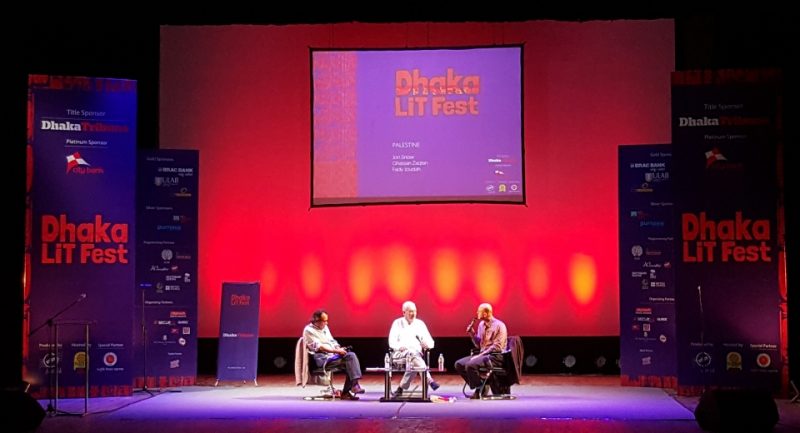
Image courtesy of the Dhaka Literary Festival
What are the kinds of considerations or issues that are specific to running a festival in the Bangladesh context?
Challenges have been varied – even though there was great support for an international literary festival, there were pockets of resistance in the early years from some quarters when we held the festival in the haloed grounds of the Bangla Academy. Given the history of our fight towards self-determination, and the right to speak and write in our mother-tongue, Bangla, some initially felt that Bangla would be side-lined. However, the festival has not only a wide-ranging international sensibility, but also one that reflects the essence of Bangladesh, as demonstrated by our highlighting our oral forms as well as our literature, old and new. Those dissenting came to realise that our vision was to showcase the best of Bangladesh – Bangla and English as well as our less known other indigenous languages – to a world beyond the Bangla speaking world, which is unaware mostly of our rich and diverse literary and cultural heritage, based on hundreds of years of influence from various traditions, like Sufi Islam, tantric Buddhism, Animism and Hinduism. We have sessions every year on translations, and translated books of Bangla authors. One of the aims and a challenge has been to take the best of our literature to the rest of the world.
The other huge challenge has been that of raising money to cover the festival costs...which we have been doing locally since our inception. It has been wonderful that we have been able to mobilise local sponsors to come forward, though it hasn’t been easy. Our persistence and consistency has paid off, and Dhaka Lit Fest has emerged as one of the key events of the Dhaka cultural calendar.
Bangladeshis are passionate about language – and this festival has come to be an opportunity for our audiences to be exposed to the world’s best minds, and relook at the world in different ways. The energy, interactions, enthusiasm and level of debate, as well as the warmth and attentive engagement of our audience, is fantastic. It is a great place to question preconceived notions, share ideas, and imagine a different way of doing things. It has enabled all kinds of voices be heard – including the marginalised and those lesser known. There is also an excellent opportunity to highlight different narratives from a wide range of perspectives, with international guests, not just UK and USA-centric, but from different parts of the world.
We have had various challenges with regards to the practical running of the festival amongst inevitable political turmoil. For example our 2013 festival, which went off beautifully in the end, was at the tail-end of a 96 hour blockade, with threats of interference from other quarters too. We arranged state-security for all our guests, but were determined to maintain the continuity of the festival. Our faith was paid off by a huge turn out of crowds. In recent years an escalation of attacks and threats on writers and publishers has also meant we have been working hard to keep this literary and cultural sanctuary, and put a lot of effort in security measures. Last year, 19 authors cancelled, mostly from UK and USA, although despite the cancellations, over 60 international guests (including a Nobel Prize winner!), and many more local artists, participated in what turned out to be a fabulous event. However it meant we were having to revise the programme repeatedly, even till the last minute!
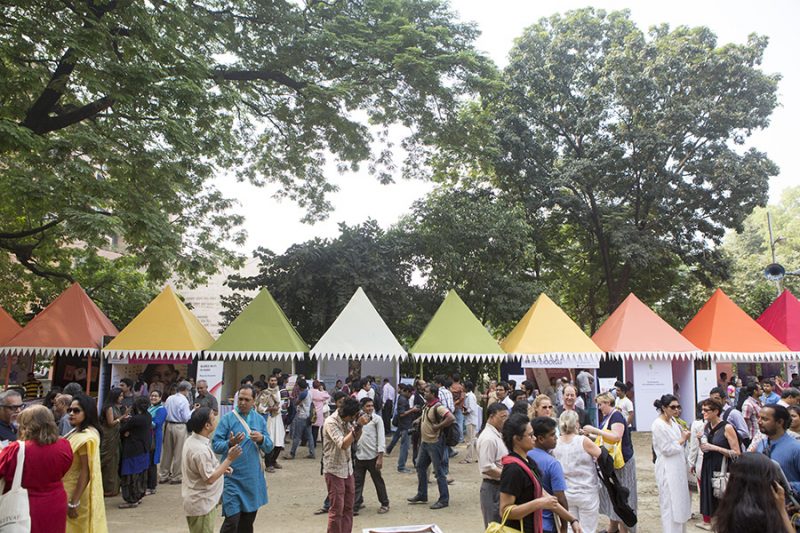
Image courtesy of the Dhaka Literary Festival
When you program the festival, do you have certain themes or topics that you want to develop each year?
Myself and my co-directors Ahsan AKBAR and K. Anis AHMED, spend a lot of time curating a well-balanced thought-provoking programme, featuring the range from literary fiction, non fiction, poetry, oral literature, philosophy, science and maths, and theatrical and musical performances, with international speakers as well as Bangladeshi writers and poets. We give poetry equal importance, rather than put it in as a token. We are conscious to include a range of perspectives; voices which are not in the ‘circuit’, as well as up and coming authors, next to the bigger names. Writers and thinkers from different parts of the world are included, with views that are not necessarily reflected in the mainstream.
Themes sometimes evolve organically and sometimes are specially orchestrated – for example given the current scenario in Asia, Freedom of Expression was a natural theme which emerged last year, with Nayantara SAHGAL giving the key note, and Jon SNOW, Kiran NAGARKAR, and Sobhaa DE all taking this forward in different ways. We always have a large number of great women speakers, but this last year the theme of an exploration of feminism and gender equality came through by carefully planning a range of sessions – on differing views on sex-work, a conversation between the sexes, exploring what feminism means for women today, taking a critical look at how passionate advocates against violence against women have diametrically opposing views for strategies, as well as celebrating the achievements of women in different fields.
What are some of the challenges of programming a literature festival?
Programming is sacrosanct, and we ensure that we have full editorial control, independent of sponsors and the government. We are conscious to ensure we address difficult conversations and topics, which may not be explored elsewhere. We also make an effort to include voices which may not be heard.
One of the challenges is securing the authors we wish to best represent a certain theme, or topic for that year. The other is ensuring that we get the best out of our speakers, who have a range of strengths that they bring to the festival, to ensure the topics are engaging, and expose our audience to different ways of thinking, and challenge assumptions or the status quo. Moderators have to also be chosen carefully, and have to be well prepared to bring the best out of the session. Sometimes the audiences may not be familiar with authors, and the challenge is to ensure that the sessions are stimulating and interesting. We have often had feedback that people have attended sessions based on being attracted to the title or description, without being familiar with the author, and often found the session delivered more than anticipated.
We are also conscious to ensure that there is a good mix of international and local authors in sessions, as well as a great Bangla sessions, with the best of Bangla literature explored. It is a unique forum to have English and Bangla showcased side by side, and we are mindful of the fact that it is a celebration of all different kinds of literature, a festival that is very international, but also relevant to a Bangla speaking audience, who can be exposed to the best from abroad, but also have food for thought in Bangla.
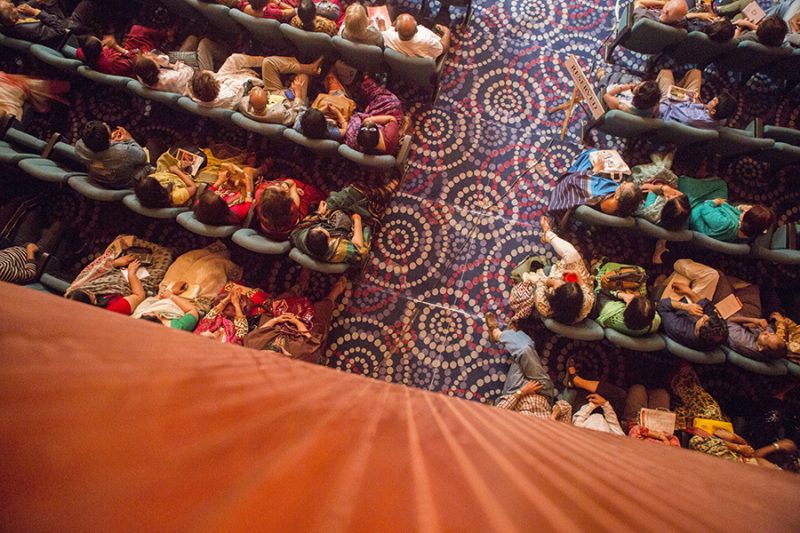
Image courtesy of the Dhaka Literary Festival
Could you explain a bit about working with international writers? For example, how do you select which writers would be best for engaging with the Bangladeshi public or for your specific programme each year?
International authors are selected based on a mixture from our own wish-list of authors who we feel are doing exciting work and would connect with our audiences, to those who are currently making waves in the literary scene, have particular relevance on a theme we are working on, have a stellar body of work, or a new book out which would be topical and relevant. Sometimes we are in correspondence with authors for several years before they can make it, or it could be a spontaneous invitation during a chance meeting! We also look to ensure our different categories and themes are covered, maintaining a diversity of topics, and an international balance. Hence we will sometimes then space out invites – for a year or two down the road. We also ensure that our Bangla list is solid, and include interesting writers from West Bengal too.
What advise would you give to someone establishing or developing a literary festival?
It is an extremely rewarding experience and a huge privilege, but one needs to be prepared to put in an enormous amount of time, have boundless energy and enthusiasm, a deep belief in what you are doing, and a positive attitude to the inevitable ups and downs on all fronts. The financial aspect of how to sustain the festival is important, as well as putting a lot of thought and effort into the programming. The logistics also have to be carefully planned and executed. It is always a work in progress, where you adjust and learn from mistakes, and build on the successes you have.
In your opinion what makes a good or successful literary festival?
Having high quality panels that can inspire excitement, debate and discussion, generate ideas, build bridges and mutual understanding, challenge myths and misconceptions, or put forward alternate ways of looking at the world and the human condition, which may spill over into conversations and projects well beyond. To be inclusive and have a blend of different voices and opinions, with well-known personalities alongside new, and often marginalised voices.
The festival should be an adventure of the mind, exploring the boundaries of thought. It is great to have a diverse array of topics and participants, but it should be intimate enough for conversations between people. It’s the attention to detail in terms of the quality of sessions, type of speakers and topics, seamless logistical arrangements, and care taken for every dimension of the festival, which add to the overall experience.
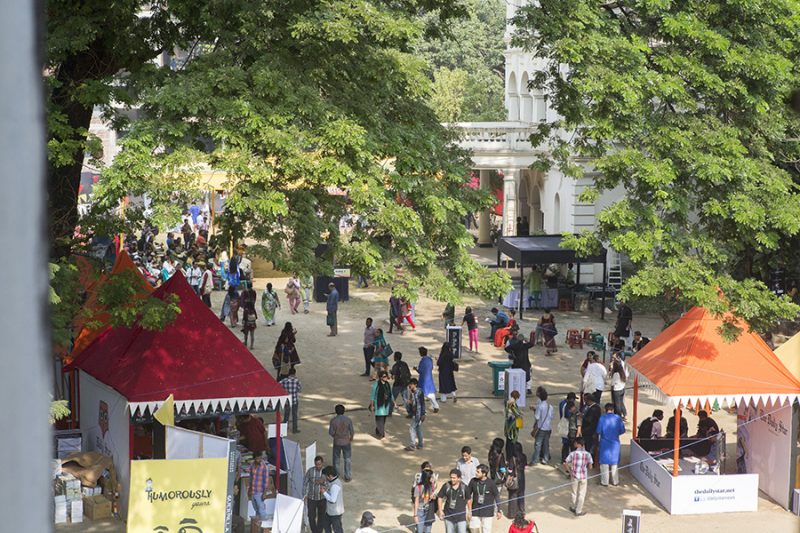
Image courtesy of the Dhaka Literary Festival
How do you see the Dhaka Literary Festival evolving in the future?
We hope to continue to provide a necessary literary and cultural space for debate and discussion, especially crucial given our current situation; a space where ideas and words freely flow to inspire, a place to nurture and encourage new writers and readers, and a platform for writers from Bangladesh and from elsewhere. We hope to build on what we have achieved to have a truly international representation showcasing a wide range of work, exploring different literatures, histories, alternative narratives, and have cross cultural, cross-regional and cross generational dialogues, which may touch on topics not normally spoken about. We will continue to celebrate our rich heritage, support new expressions of creativity, and take our literature beyond our borders, through great translations, conversations and friendships. We hope it will be known as one the great smaller intimate festivals that people from all over would wish to attend and experience!
In 2016 the Dhaka Literary Festival is held from 17 to 19 November.
More at: http://dhakalitfest.com/
Claire Rosslyn WILSON is a poet and non-fiction writer who focuses on writing about arts and multicultural themes. She has eight years of professional experience in resource development and the arts and has worked with international and non-profit organisations in Thailand, Singapore and Australia. She has had her work published in various journals and is currently doing a PhD on creative writing and cultural adaptation. You can follow her on Twitter @clairerosslyn.
Similar content
from - to
08 Mar 2013 - 25 Mar 2013
from - to
23 Oct 2013 - 01 Nov 2013
posted on
24 Oct 2018

